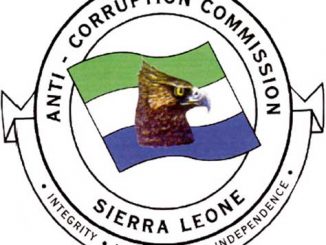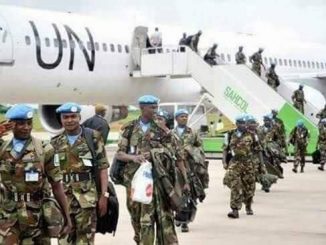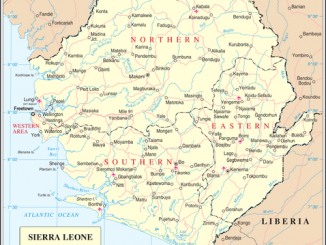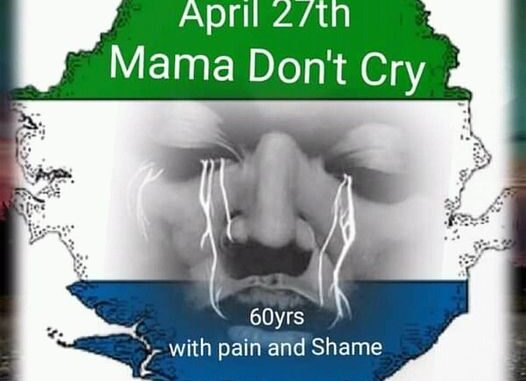
The narrativization of our individual/collective past(s), what some would call history, has hardly ever rested on problematizing that past in the interest of national unity. Those who have written about that past, Sierra Leoneans as well as non-Sierra Leoneans, have dwelt on the crass reality of an imaginary and unchanging ethnicity throughout history.
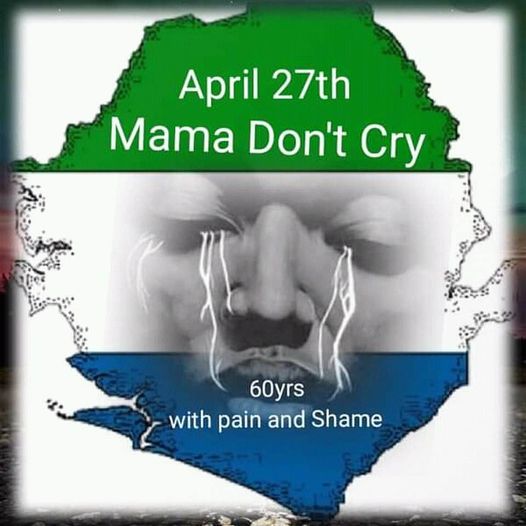
Framing an understanding of that past by employing/deploying the notorious racist binary—Colony versus Protectorate—gives away what needs to be problematized. For it not only assumes the superiority of the Colony as against the Protectorate, but more importantly underwrites an hierarchisation of peoples and cultures with the West at the top and the rest at the bottom.
This insidious colonial legacy still informs intellectual labour and popular practice in the contemporary period. Throwing away that colonial garbage and its multiple meanings is central to the rebirth of a new Sierra Leone.
27 April 1898 not only signaled the birth of Sierra Leone as a modern nation-state; it also marked the beginning of armed struggle against British imperial domination. Sierra Leone, as we know it today, did not come into being in 1808 when the Crown Colony state was imposed from above by eager imperialists and their agents claiming the three C’s—Commerce, Christianity and Civilisation—as its governance mantra.
The insurrection of 1898 to re-assert and reclaim sovereignty, the so-called Hut Tax War, witnessed two armed uprisings: in February and April that were to last till the end of the year. These risings in the ‘North-West’ and ‘South-East’ united the popular masses in a common struggle against alien imposition. Thus supplies and materiel of war were deployed from the ‘South-East’ to the ‘North-West’ to bolster/support the heroic insurrection mounted by Bai Bureh of Kasse.
The coalition of independent polities that waged war against the British was all multi-national and multicultural states incorporating two or more linguistic groups—they were no tribal entities imagined by Africanists. The support that Kai Londo and Alimamy Suluku gave to Bai Bureh—men and weapons—was indicative of the nascent national spirit-in the making, which defined and shaped that insurrection. It was the nation-state in the making that collectively rose to fight what was justly seen as an imperial invasion. And like elsewhere, the birth of the nation came dripping with the blood of the people.
It is therefore not coincidental that those who would spearhead the move to take back the new nation-state (stitched out of the several independent polities that existed before the coming of the white man) in the era of decolonization opted symbolically to appropriate and totally own 27 April as a unifying national brand. And the SLPP—the grand old party—midwifed 27 April—symbolised the spirit of that national unity, the nation-in-the-making, which inspired and sustained the 1898 insurrections.
Reappropriating that national symbol of unity eventually crystallised into the merger of Lamina Sankoh’s Peoples Party; Dr. Margai’s Sierra Leone Organisation Society(SOS) and Dr. Kerefa-Smart’s Protectorate Educational Progressive Union(PEPU), of which Siaka Stevens was a member. Here are feudal chieftains; liberal professionals; and middle class elements, united, I would argue, in the spirit of 1898. And that unity in the form of Peoples Party, did not exclude citizens from the Western Area; the party’s motto—One Country One People—unarguably symbolised the spirit of resistance encapsulated in the primary resistance of 1898.
Appropriating the spirit of primary resistance as a mobilizing tool against colonial domination was an integral aspect of the repertoire of those who inherited the colonial state. From Algeria to Zimbabwe—two African countries that embraced armed struggle, as the pathway to liberation against settler colonialism—the spirit and script of primary resistance was instrumental as the symbol of struggle and in defining the nation-in-making.
If the FNL in Algeria embraced the 1831 resistance to French domination with Abd al Kadir as the national hero, the ZANU/ZAPU alliance relied on Nehanda the spirit medium of the first Chimurenga struggle of 1896 to mount and sustain what became the second Chimurenga against settler colonial domination.
Nationalist struggles, in Africa and elsewhere, were not only about history-making; they were also about (re) writing history (ies)/herstory (ies) and making nations.It is this context that animates 27 April in the nation’s history, this time, as the date of independence—a conscious collective effort to foster and promote the unity that had informed the 1898 insurrection. Unity would become one of the pillars of new the nation; together with freedom and justice—two universal liberal ideals.
27 April was selected as the date of independence against the personal wish of Dr. Margai to have independence on his birthday—7 December! From 1898 to 1961, 27 April, had became the recurring marker defining the nation in unpredictable ways—from primary resistance to colonial domination to the natal date of the oldest political party in the nation and finally to flag independence.
The enduring lesson of the recurring 27 April should not be about celebrating our so-called freedom from colonialism, which never happened—neo-colonialism is alive and well! Rather 27 April should be about deepening the spirit of national unity that inheres in the 27 April experience of 1898. In a recent radio interview on 98.1, Mr. President yanked a leaf from the 27 April experience by referencing the ROMENE community in present day Port Loko.
Recounting the unwritten history of this community, the President revealed, their origin—descendants of a group of veterans of the insurrection in the ‘South-East’ deployed to the ‘Northwest’ to fight alongside Bai Bureh. The veteran soldiers not only fought and died defending the ideals for which Bai Bureh waged war, but they stayed put and never returned from whence they came. Their unwritten history of supreme sacrifice to defend the nation-in-making and the resolve of the survivors to go local should serve as a source of inspiration about how to think and act as members of a modern nation-state.
The spirit of ROMENE trumps ethnicity and bigotry; it erases the notion of insiders versus outsiders; and it effaces the fratricidal binary of indigene versus settlers.
ROMENE is as trans-ethnic as it is trans-national; it opens the door of meaningful citizenship to all irrespective of where they come from. ROMENE in practice simply means that every Sierra Leonean would have the right to live and work anywhere sans restrictions—acquire land and contest for political power irrespective of their place of origin.
ROMENE is the anti-thesis of an ethnic driven politics where your roots defines who you are. In theory and practice, the ROMENE community gives more substance to the meaning of citizenship as lived experience; an inclusive paradigm that valorizes humanity sans ethnicity or origin. Flag Independence unarguably gave us a decracialised nation-state; but it left us with a ‘tribalised’ society and politics.
The colonial legacy of ‘tribalised’ state and society needs to be transcended in the spirit of ROMENE. There was no Temneh/Mende land, or a Lokoh/Limba land before the coming of the Whiteman; the idea that a particular space belongs to a particular ‘tribe’ is a colonial invention. Similarly there were no inter-tribal wars in before colonialism; there were inter-state wars—wars between multi-ethic/multi-national states not ‘tribes’.
27 April 1898 unarguably alienated a section of the population; and the scars from the war of insurrection came to define aspects of national politics after 1945 and beyond. Attempts to heal slipped away after the violent and uncompromising exchanges in the papers and the incendiary debate in the Protectorate Assembly. But after sixty odd years of flag independence can’t we get along as a nation?
And what better way to move than to reclaim the spirit of ROMENE!Mr. President—can’t we just do ROMENE?
IB Abdullah
Freetown

